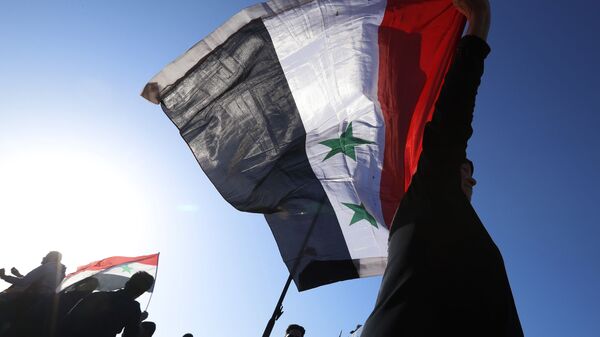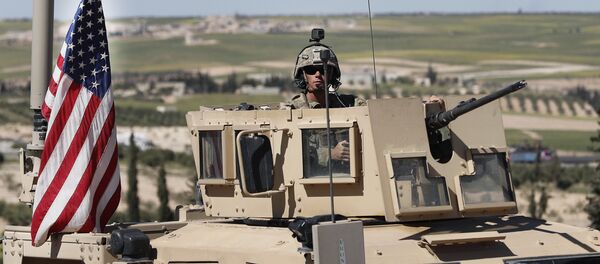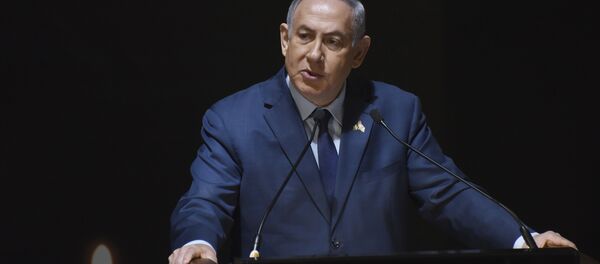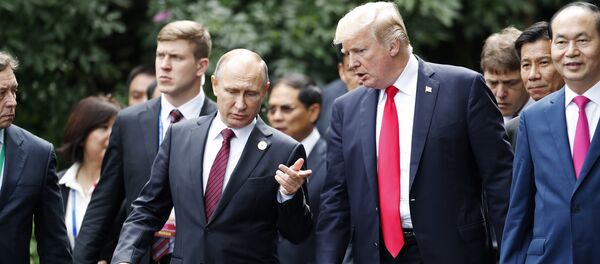The possibility of Israel's armed confrontation with Iran is high, says Mylene Doublet O'Kane, a French-Israeli academic and independent analyst in geopolitics, suggesting that the US and its allies may follow suit.
Commenting on Tel Aviv's sporadic attacks on Syrian territory, the geopolitical analyst explained that one of Israel's major concerns is an "uninterrupted supply corridor" from Tehran to Syria and Lebanon which could be used to support Hezbollah and Hamas, groups which are designated as terrorist organizations by Israel and some other countries.
"In Syria, the crucial target is the route running along the Euphrates River with a critical point at the al-Bukamal Iraq-Syria border crossing and other entry points," she noted. "It is plausible that these multi-focal attacks are preceded or followed by air strikes against infrastructure held by the IRGC (Iranian Revolutionary Guard Corps) in these areas and also in the vicinities of Damascus, Aleppo, Palmyra etc."
Tehran is taking measures to prevent this scenario by boosting relations with the newly-elected Iraqi leadership, the analyst noted.
"The ongoing formation of the new Iraqi government is believed to be of critical importance for Iran," she presumed. "Indeed, the elections have recently been won by a leftist bloc and Shia leader Muqtada al-Sadr."
O'Kane has drawn attention to the fact that on the day of the Iraqi parliamentary election, Tehran dispatched IRGC General Qassem Soleimani to Bagdad. According to the analyst, his presence was aimed at strengthening ties with the potential leader to ensure Iran's influence in the region.
On May 16, Reuters reported, citing sources familiar with the matter, that Soleimani was holding talks with Iraqi politicians to promote the formation of a new cabinet. On June 12, after a protracted period of negotiations, al-Sadr's Sairun Alliance struck a deal with the pro-Iran Fatah Alliance.
The analyst underscored that this is yet another indicator that Tehran is by no means willing to retreat amid mounting pressure from the US and its Middle Eastern partners.
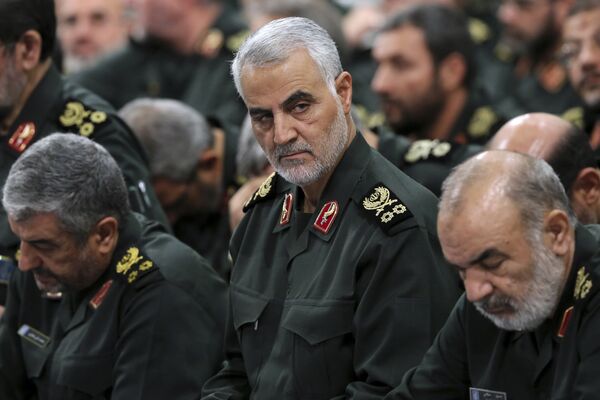
'Iran Has No Plans to Withdraw From Syria'
O'Kane expressed her doubts regarding Iranian President Hassan Rouhani's vow to leave Syria, citing "the energy and money Tehran has already invested to increase its influence in the Middle East."
"Iran has no plan whatsoever to withdraw from Syrian territory," she opined.
In this situation, Israel turns to Russia as a newly-emerged Middle Eastern broker. Earlier in June, Israeli Prime Minister Benjamin Netanyahu expressed his concerns regarding the security of the Syrian-Israeli border in a phone conversation with Russian President Vladimir Putin ahead of the Syrian army's southwestern advance.
A diplomatic solution of the Iran-Israeli standoff seems especially difficult amid the exchange of tough statements by Tehran and Tel Aviv.
In addition, tensions continue to simmer over the Israeli-controlled Golan Heights. The two countries reportedly exchanged a series of air strikes in the disputed region in early May. However, Tehran denied its involvement in the incident. In the beginning of June 2018 the Israeli Defense Forces (IDF) kicked off unexpected large-scale military drills in the Golan Heights. In response, Syria bolstered its air defenses in the region.
'Virtually No Room for a Peaceful Resolution Left'
The situation in southern Syria has continued to escalate, leaving little if any room for a diplomatic resolution, the Israeli analyst warns, suggesting that Israel, the US and its Gulf allies may step up attacks on alleged Iranian positions in Syria as early as in mid-July.
"As an overall, the war in Syria is about to enter into a major regional conflict including several hot spots of varying intensity," she underscored.
"I reiterated our guiding principles regarding Syria," Netanyahu said on June 17 while commenting on his separate negotiations with President Putin and US Secretary of State Mike Pompeo. "First of all, Iran needs to withdraw from all of Syria. Second, we will take action — and are already taking action — against efforts to establish a military presence by Iran and its proxies in Syria, both close to the border and deep inside Syria."
The views and opinions expressed by Mylene Doublet O'Kane and Ekaterina Blinova are those of the contributors and do not necessarily reflect those of Sputnik.

